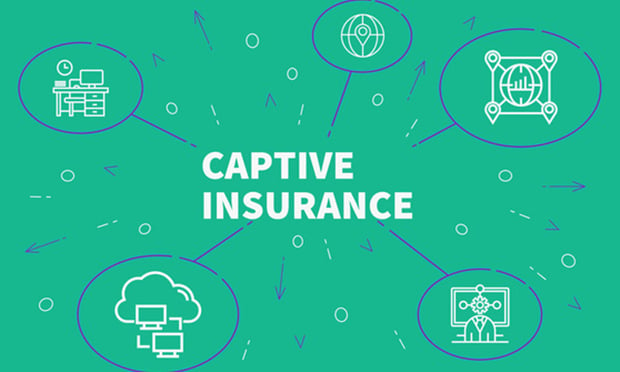 The scope of captive insurance in Florida could be significantly expanded if captive-specific legislation pending in the 2011 Florida Legislature is ultimately enacted.Although no licensed Florida captives currently exist, state law presently allows for the creation of ”captive insurers” and “industrial insured captive insurance companies.” Both of the currently filed bills, HB 1235, sponsored by Rep. Jeanette Nunez, R-Miami, and its identical counterpart, SB 1836, introduced by Sen. Miguel Diaz de la Portilla, R-Miami, would change Florida's requirements for both currently authorized captive insurers and create other types of permitted captive insurance companies.
The scope of captive insurance in Florida could be significantly expanded if captive-specific legislation pending in the 2011 Florida Legislature is ultimately enacted.Although no licensed Florida captives currently exist, state law presently allows for the creation of ”captive insurers” and “industrial insured captive insurance companies.” Both of the currently filed bills, HB 1235, sponsored by Rep. Jeanette Nunez, R-Miami, and its identical counterpart, SB 1836, introduced by Sen. Miguel Diaz de la Portilla, R-Miami, would change Florida's requirements for both currently authorized captive insurers and create other types of permitted captive insurance companies. HB 1235 and SB 1836 may spur captive development in Florida as a result of the lowering of captives' capital and surplus requirements, as well as the expansion of the types of captives permitted in Florida, including the creation of a “special purpose captive insurance company.”
Generally, a special purpose captive would only insure risks of its parent, affiliates and certain unaffiliated companies, but could provide both insurance and reinsurance for other risks as approved by Florida's insurance commissioner. Importantly, only special purpose captives would be able to provide personal motor vehicle insurance, homeowners insurance or a component thereof, if approved by the commissioner. Organized as a stock company, the current permitted captive insurer—designated as a “pure captive insurance company” under the proposed legislation—would be required to possess and maintain unimpaired paid-in capital of at least $100,000, along with unimpaired surplus of at least $150,000. Organized as a non-profit corporation, a pure captive would be required to have unrestricted net assets of least $250,000. Under current Florida law, a captive insurer is required to possess and maintain unimpaired paid-in capital of at least $500,000 and unimpaired surplus of at least $250,000. If organized as a reciprocal, captives, including a pure captive, would be required to possess and maintain unimpaired surplus of $1 million, regardless of type.
Under the proposed law, an industrial insured captive insurance company incorporated as a stock insurer or as a limited liability company would be required to have unimpaired paid-in capital of at least $200,000 and unimpaired surplus of at least $300,000. As a mutual insurer, it would be required to possess and maintain unimpaired surplus of at least $500,000. With the enactment of HB 1235 or SB 1836, capital and/or surplus requirements for industrial insured captives would drop significantly, as indicated by the foregoing, from the current minimum requirement of $20 million in unimpaired capital and surplus.
Recommended For You
Want to continue reading?
Become a Free PropertyCasualty360 Digital Reader
Your access to unlimited PropertyCasualty360 content isn’t changing.
Once you are an ALM digital member, you’ll receive:
- Breaking insurance news and analysis, on-site and via our newsletters and custom alerts
- Weekly Insurance Speak podcast featuring exclusive interviews with industry leaders
- Educational webcasts, white papers, and ebooks from industry thought leaders
- Critical converage of the employee benefits and financial advisory markets on our other ALM sites, BenefitsPRO and ThinkAdvisor
Already have an account? Sign In Now
© 2025 ALM Global, LLC, All Rights Reserved. Request academic re-use from www.copyright.com. All other uses, submit a request to [email protected]. For more information visit Asset & Logo Licensing.








